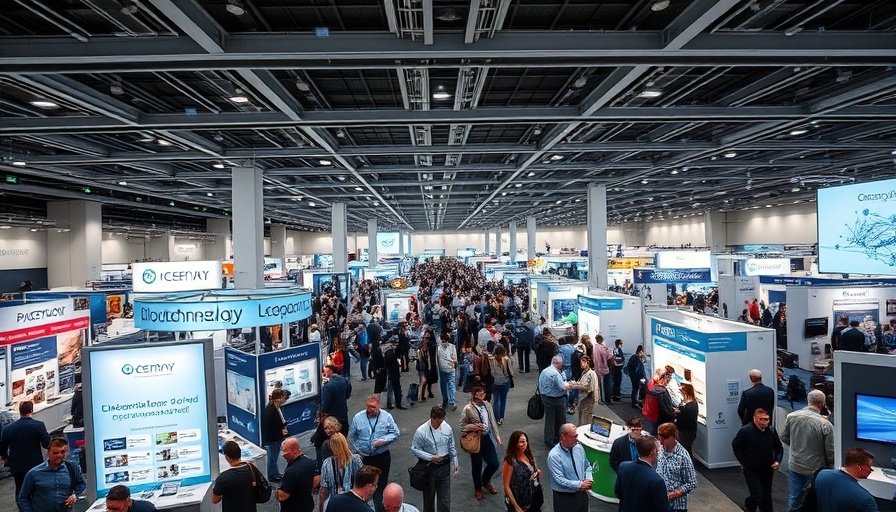
The Future of Biotech: Why Innovation Matters
The extraordinary pace at which artificial intelligence (AI) is being integrated into the realms of genetic engineering, healthcare, and medical research presents an unprecedented opportunity for improving human health and our ecological balance. As we look toward the future, the impact of biotech innovators like Ben Lamm cannot be overstated — they are the torchbearers of advancement amidst an increasingly skeptical global atmosphere regarding science and public health.
A Gathering of Minds: Insights from BIO 2025
Recently, the BIO 2025 Convention attracted over 20,000 leading scientists, executives, and start-ups to Boston, showcasing the potential for collaboration and innovation in the field of biotechnology. Yet, the backdrop of this gathering paints a complex picture: government funding for research and development is expected to see reductions ranging from 40% to 60% across the United States’ National Institutes of Health (NIH) and the National Science Foundation (NSF). Despite these challenges at the federal level, many state governments have stepped forward, offering R&D credits, seed funding, and improved facilities, thus presenting a contrasting narrative in support of biotechnology.
The Role of AI in Shaping New Therapies
One of the standout themes from the convention was the role of AI in unlocking new possibilities for drug development and medical devices. This innovation is crucial as the world grapples with health crises and public health challenges, including pandemic preparedness. Biotech startups are not only navigating these turbulent waters but are paving new paths forward. An example lies in the work of Lamm and his team at Colossal Biosciences, where they aim to harness CRISPR technology for the de-extinction of species.
Colossal Biosciences: Bridging the Gap Between Nature and Technology
Founded by Dr. George Church, a geneticist at Harvard and MIT, and Ben Lamm, Colossal spearheads groundbreaking initiatives in genetic engineering. The company's efforts to bring back extinct species, such as the Dire Wolf, underscore both the potential and ethical complexities of modern biotechnology. As Lamm succinctly puts it, "We are the back-up plan," revealing an underlying commitment to biodiversity and sustainability. The philosophy here is not just about resurrecting lost species, but also about enabling these organisms to adapt and thrive in a rapidly changing environment.
The Importance of Public Trust and Support
Public trust in biotechnology is critical as the field aims to address pressing global challenges. It is vital for innovators like Lamm and their ventures to engage transparently with the public and address concerns sensibly while showcasing the tangible benefits biotech can bring — from developing solutions to climate change to creating new therapeutic options. By prioritizing communication and collaboration with regulatory bodies, there are opportunities to expedite the approval process for innovative products that could transform lives.
Looking Forward: Trends and Predictions in Biotech
As we look toward the horizon, the future for biotech is both promising and precarious. The potential for biologically-based solutions for pressing environmental and health crises cannot be overstated. However, as observed at BIO 2025, sustaining this momentum will require persistent public and political advocacy for science-friendly policies. This means rallying support not only for cutting-edge initiatives but also for fundamental research that drives them.
Act Now: Why Supporting Biotech Matters
As the stakes in public health, climate change, and resource management heighten, the message is clear: we must support innovators like Ben Lamm and his peers. Their work holds the key to a sustainable and healthier future. Engagement, investment, and advocacy for biotechnological development are now more than just good ideas; they are essential actions we must take as stewards of our planet.
Through sustained support and belief in biotechnology, we can become more than passive observers; we can be active participants in shaping a brighter, more sustainable future. Whether you are an investor, a policymaker, or an interested citizen, understanding what’s at stake and supporting innovative solutions are crucial next steps.
 Add Row
Add Row  Add
Add 



Write A Comment